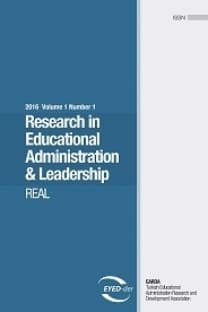Reflections on “The American Scholar”: Words of Inspiration for These Dark Times
Reflections on “The American Scholar”: Words of Inspiration for These Dark Times
Democracy, freedom, the scholar, literary and historical exegesis dark times in education,
___
- Arendt, H. (1958). The human condition. The University of Chicago Press.
- Biesta, G. J. J. (2014). The beautiful risk of education. Paradigm.
- Biesta, G. (2019). What kind of society does the school need? Redefining the democratic work of education in impatient times. Studies in Philosophy and Education, 38, 657-668. doi.org/10.1007/s11217-019-09675-y .
- Brown, W. (2019). In the ruins of neoliberalism: The rise of anti-democratic politics in the West. Columbia University Press.
- Brown, W. (2021, November). What’s left of freedom? Keynote given to the biannual conference of the Radical Philosophy Association, November 13, 2021.
- Burke, P. (2000). A social history of knowledge: From Gutenberg to Diderot. Polity Press.
- Emerson, R. W. (1837). The American scholar. http://digitalemerson.wsulibs.wsu.edu/exhibits/show/text/the-american-scholar
- Emerson, R. W. (1841). The poet. http://digitalemerson.wsulibs.wsu.edu/exhibits/show/text/second-series
- Emerson, R. W. (1971). The American scholar. In A. R. Ferguson (ed.), The collected works of Ralph Waldo Emerson, Vol. 1, Essays, First Series (pp. 52-70). Belknap Press.
- Enzensberger, H. M. (1982). Critical essays. R. Grimm & B. Armstrong (eds.). Continuum.
- Hargreaves, A., & Shirley, D. (2009). The fourth way: The inspiring future for educational change. Corwin.
- Hazony, Y. (2012). The philosophy of Hebrew Scripture. Cambridge University Press.
- Kendzior, S. (2020). Hiding in plain sight: The invention of Donald Trump and the erosion of America. Flatiron Books.
- Lawrence, D. H. (1950). Democracy. In Selected essays (pp. 73-95). R. Aldington (ed.). Penguin Books.
- Liang, B. & Klein, T. (2022a). “How to navigate life” helps students find their purpose outside of academic achievement. Here & Now, WBUR, August 10, 2022. https://www.wbur.org/hereandnow/2022/08/10/how-to-navigate-life
- Liang, B., & Klein, T. (2022b). How to navigate life: The new science of finding your way in school, career, and beyond. St. Martin’s Press.
- Mallarmé, S. (2007). Restricted action. In Divagations. B. Marchal (ed.). B. Johnson (trans.) Belknap.
- Marche, S. (2022). The next civil war: Dispatches from the American future. Avid Reader Press. Menchen, H. L. (1926). Notes on democracy. Alfred A. Knopf.
- Nietzsche, F. (1874). Schopenhauer as educator: Friedrich Nietzsche’s third untimely meditation. D. Pellerin (trans.). (Republished 2018 by D. Pellerin)
- Quijano, A. (2007). Coloniality and modernity/rationality. Cultural Studies, 21(2–3), 168–178. https://doi.org/10.1080/09502380601164353
- Rancière, J. (1991). The ignorant schoolmaster: Five lessons in intellectual emancipation. Stanford University Press.
- Rancière, J. (2010). On ignorant schoolmasters. In C. Bingham & G. Biesta, Jacques Rancière: Education, truth, emancipation (pp. 1-24). Continuum.
- Rancière, J. (2014). Hatred of democracy. S. Corcoran (trans.). Verso.
- Rancière, J. (2019). Aisthesis: Scenes from the aesthetic regime of art. Verso.
- Schumpeter, J. A. (1942). Capitalism, socialism and democracy. Harper Perennial.
- Stack, M. (2021). (Ed.). Global university rankings and the politics of knowledge. University of Toronto Press.
- Waite, D. (2022). On educational leadership as emancipatory practice: Problems and promises. Routledge.
- Walzer, M. (2002). The company of critics: Social criticism and political commitment in the twentieth century (2nd ed.). Basic Books.
- Whalen, J. (2022). Russian students are turning in teachers who don”t back the war. The Washington Post. April 10, 2022. https://www.washingtonpost.com/world/2022/04/10/russia-war-dissent-opposition-crackdown/
- Whitman, W. (1855). Preface to first edition, Leaves of Grass. http://www.bartleby.com/39/45.html
- Whyte, W. H. (1956). The organization man. Simon & Schuster. (Republished 2002, The University of Pennsylvania Press).
- Williams, R. (1958). Culture & society: 1780-1950. Columbia University Press.
- Williams, R. (1976). Keywords: A vocabulary of culture and society. Fontana Press.
- Yayın Aralığı: Yılda 4 Sayı
- Yayıncı: Dokuz Eylül Üniversitesi
Anette FORSSTEN SEİSER, åsa SÖDERSTRÖM
School Leadership and Gender in Africa: A Systematic Overview
Tony BUSH, Jocelyne KİREZİ, Richard ASHFORD, Derek GLOVER
“Navigating Uncharted Waters”: New Teacher Mentoring and Induction
Reflections on “The American Scholar”: Words of Inspiration for These Dark Times
Private Schools' Marketing Tactics, Parents’ Loyalty and School Image: A Structural Equation Model
Sümeyye MERMER, Niyazi ÖZER, Süleyman Nihat ŞAD
“Underprepared” Principals Leading Curriculum Reform in Lesotho
